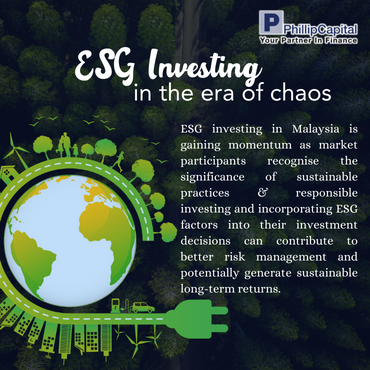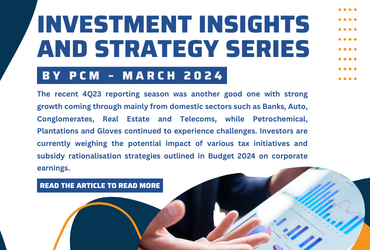
According to Morningstar Direct’s “Q1 2023 Review on Global Sustainable Fund Flows”, global sustainable funds attracted USD 29 billion of net inflow in the first quarter of 2023, down from nearly USD 38 billion in the previous quarter. However, despite the decline in inflows, the total assets of global sustainable funds showed a recovery trend, reaching USD 2.74 trillion by the end of March (Exhibit 1). This 7.5% expansion exceeds the overall global fund market growth of 4% in the three months through March 2023.
In terms of inflows, Europe emerged as the dominant region, attracting USD 32.3 billion (Exhibit 2). Over the past year, the increasing significance of ESG-related regulations, such as the European Union’s Sustainable Finance Disclosure Regulation and Taxonomy Regulation, noticeably influenced the demand for sustainable funds. Malaysia saw some modest net inflows at USD 49 million in the first quarter of 2023.
Exhibit 1: Quarterly Global Sustainable Fund Assets (USD Billion)

Source: Morningstar Direct
Exhibit 2: Global Sustainable Fund Statistics

Source: Morningstar Direct
Despite the challenges posed by rising interest rates, inflation, and the potential for a looming recession, there remains a consistent and growing desire among investors to allocate their resources towards investments that promote a more sustainable future. As highlighted in our previous article, Europe has taken the lead in adopting green and sustainable-focused policies. This trend is expected to be emulated by major Asian markets, serving as a critical catalyst for the growth of the sustainable investing market in the region. However, the political and regulatory landscape in the United States is charting a different course. Despite this divergence, recent policy measures such as the Inflation Reduction Act suggest that attractive investment opportunities will likely emerge, motivating companies and investors to redirect capital towards greener and more sustainable businesses.
Economists argue that it is inevitable that the transition to a clean energy-powered economy may have some inflationary effects. This is primarily due to substantial fiscal support and the significant influx of investments into technologies such as wind, solar, and electric vehicles. However, it is equally crucial to acknowledge that the failure to take decisive action in adapting to climate change could ultimately result in even greater inflationary consequences.
An example of this is the European heatwave experienced in the summer of 2022. The heatwave resulted in severe economic disruptions, including impacts on agriculture, energy systems, and infrastructure. These disruptions incurred significant costs, both in terms of immediate damages and long-term consequences. Such environmental events can trigger rising costs associated with repairing and rebuilding damaged infrastructure, addressing health issues, and managing the consequences of resource scarcity. Thus, it is essential to prioritise climate action to mitigate the long-term economic risks and avoid greater inflationary impacts in the future.
ESG Investing in Malaysia
ESG investing in Malaysia is gaining momentum as market participants recognise the significance of sustainable practices and responsible investing. Malaysian institutional investors, including pension funds and asset managers, have also shown a growing interest in ESG investing. They recognise that incorporating ESG factors into their investment decisions can contribute to better risk management and potentially generate sustainable long-term returns.
Malaysia’s market continues to face challenges due to global headwinds, as evidenced by the year-to-date decline of -5.61% in the KLCI Index (or -3.81% when accounting for dividends). Despite that, The FTSE4Good Bursa Malaysia (F4GBM) Index and FTSE4Good Bursa Malaysia Shariah (F4GBMS) Index have both exhibited better performance compared to the KLCI Index. These sustainable investing indices have experienced smaller declines of -2.48% and -1.60% respectively. This suggests that companies adhering to sustainable practices have fared relatively well in the current market conditions.
Exhibit 3: KLCI, F4GBM and F4GBMS Indices Return (including dividends)

Source: Bloomberg, as of 23 May 2023
Phillip Managed Account for Retirement (PMART) ESG and Phillip Managed Account (PMA) ESG
PhillipCapital Malaysia offers discretionary portfolio that invests in stocks with high ESG ratings from the F4GBM and F4GBMS Indices, namely PMART ESG and PMA ESG. There are both conventional and Shariah options available. PMART ESG and PMA ESG are suitable for investors who want to optimise the risk-adjusted return by constructing a diverse sustainable portfolio of ESG companies. To access the list of stocks in which we have invested, kindly click on the link provided.
The PMART/PMA ESG Conventional and Shariah Mandate portfolios, despite experiencing a slight negative return of -1.50% and -0.86% respectively as of April 2023, have demonstrated some outperformance compared to their respective benchmark indices (F4GBM and F4GBMS Indices, respectively) as well as the KLCI Index. We attribute the outperformance to lower exposure to the banking sector, which has recently witnessed significant selling pressure, as well as careful stock selection and effective risk management strategies. Outlook wise, on the domestic front, while we believe the market is likely to stay challenging in 1H23 due to potential earnings risks from rising costs, we expect a sustained market recovery in 2H23, driven by improving domestic liquidity and relative political stability. The outcome of the upcoming six state elections will be closely observed to evaluate the ruling coalition’s political performance. The outcome of these polls may influence the budget allocation and the rate of subsidy rationalisation in the Budget 2024, which is scheduled to be presented on 13th October.
Please click on the link to learn more or email us at cse.my@phillipcapital.com.my if you require any further information.
Disclaimer:
The information contained herein does not constitute an offer, invitation or solicitation to invest in Phillip Capital Management Sdn Bhd (“PCM”). This article has been reviewed and endorsed by the Executive Director (ED) of PCM. This article has not been reviewed by The Securities Commission Malaysia (SC). No part of this document may be circulated or reproduced without prior permission of PCM. This is not a collective investment scheme / unit trust fund. Any investment product or service offered by PCM is not obligations of, deposits in or guaranteed by PCM. Past performance is not necessarily indicative of future returns. Investments are subject to investment risks, including the possible loss of the principal amount invested. Investors should note that the value of the investment may rise as well as decline. If investors are in any doubt about any feature or nature of the investment, they should consult PCM to obtain further information including on the fees and charges involved before investing or seek other professional advice for their specific investment needs or financial situations. Whilst we have taken all reasonable care to ensure that the information contained in this publication is accurate, it does not guarantee the accuracy or completeness of this publication. Any information, opinion and views contained herein are subject to change without notice. We have not given any consideration to and have not made any investigation on your investment objectives, financial situation or your particular needs. Accordingly, no warranty whatsoever is given and no liability whatsoever is accepted for any loss arising whether directly or indirectly as a result of any persons acting on such information and advice.




